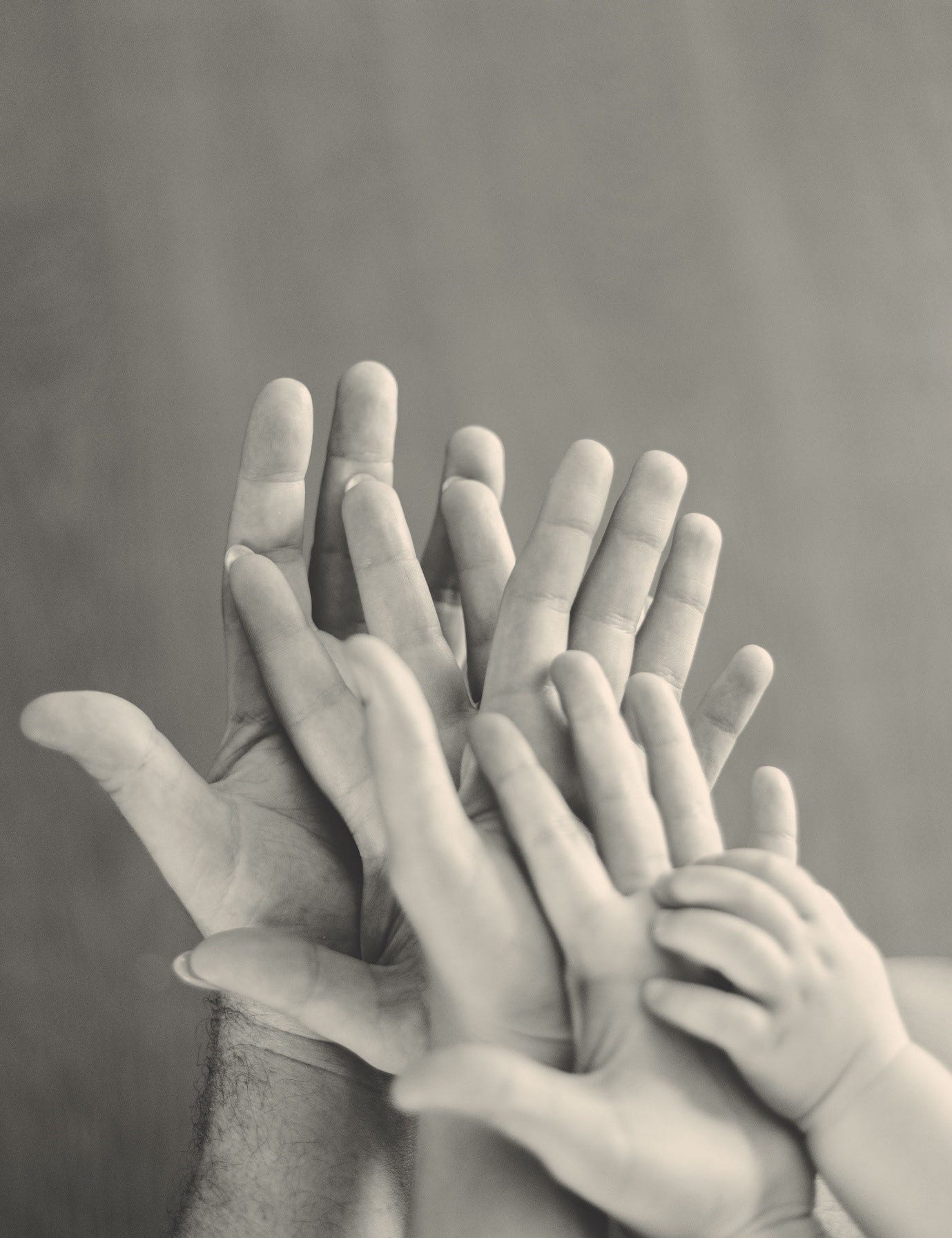This edition of the Pallavan Learning Systems newsletter features two articles by Anita Sud - Every Child Matters and Expectations of Parents and Children
Anita Sud is an accomplished and acclaimed educator with three decades of experience in India and abroad. Her expertise lies in school management, curriculum development, motivating and leading teams, and innovative, interactive teaching methods. In her articles she draws from her vast experience in the educations sphere.
Every Child Matters
Can You Use the Same Approach with All Your Children?
Every person is different, and it is important to understand and alter your approach with people.
This holds true to every aspect of life. We humans are constantly modifying our behaviour, actions, responses to people, as per the degree of familiarity and understanding you share with them, situations and places.
As a child, I noticed that my parents expectations differed with each of their children. They loved us equally, but were more lenient and benevolent towards me, their only daughter. The fact that I was not as healthy as their sons could have contributed to this and I grew up being molly coddled and given preferential treatment in everything.
They had no expectations of me, hence all my achievements were magnified and glorified. As I grew up, I learnt to work hard, as my brothers were my role models and aspired to do as well or even better than them. The spirit of competition was self driven and till today I am pushing myself to achieve milestones in whatever I do. Discipline is now a way of life and drives me to set goals for myself in every sphere, be it academic, work related, physical, or emotional.
In my work space I tried to be sensitive to the needs of my colleagues, reaching out and befriending them, understanding their strengths and weaknesses and giving them the environment required to be self driven. Love, motivation, and trust are the fundamentals that induce confidence, self esteem and a desire to do well. Encouragement and appreciation work wonders with most people.
However, when dealing with people you cannot standardise your approach. People are dynamic, and while some may respond to deadlines and your timelines, others need to be pushed and you need to adapt a tougher stance. Some people have the ability, yet tend to be laidback, and avoid taking on tasks or additional responsibility… and one is constantly evolving strategies to deal and get the best out of every employee.
Loyalty comes easily to some, others may be self-oriented, not lacking in ability, yet getting laurels for the organisation they serve is not their priority. Hence you need to constantly encourage, motivate and work on them to help them grow along with the team and the institution.
As a parent of an only child, my task at home has been easy. However, I do know that my friends have struggled with their children who need to be handled differently. While one may not need attention, the other maybe demanding and requires a lot of coaxing and sometimes chiding. As parents we tend to compare and have unfair and unrealistic expectations. They tend to forget that aspirations, expectations and actions must differ as no two individuals are same and should not be made into clones of each other.
The Pandemic has impacted all of us and most of us have had to modify our lifestyles and behaviour. As time progressed and lockdowns got extended and the seriousness of the situation and disease became evident, we all responded differently. While some of us were calm and collected, others fretted and reluctantly made lifestyle changes. All of us, young, middle aged, old, men, women and children were soon compelled to accept and adapt to this new lifestyle.
Once we were permitted walks in the vicinity, after a period of complete lockdown we learnt to enjoy that freedom, being more aware of nature, smiling and acknowledging passers by who previously went unnoticed by us.
We spent time with each other in the family, accepting and embracing change, be it in the way we learnt, worked or reacted to situations. Our kids began to eat home cooked food, and moms started to bake and cook exotic dishes to keep their children happy and not lament for the pizza or sushi they were so used to ordering in.
The old, who would spend long hours in OPD’s of hospitals, meeting their doctors more for reassurance rather than treatment, have realised that without their visits to hospitals life goes on and have adapted to consulting their doctors telephonically. They are being more careful and aware of the necessity of staying well and keeping away from hospitals.
Children have adapted to studying at home and life indoors. Parents have more time and lesser distractions and spend both quantity and quality time with their kids, trying to keep them gainfully occupied.
Funnily, I have always had a fetish for shoes. I like to match and wear shoes as per my dress, mood, comfort, occasion and location I am visiting.
I have learnt that just as you need to change your footwear, you must change your attitude, behaviour, responses and reactions to people and situations.
No one shoe fits all, we all wear different sizes, have different choices and preferences, which is part of our identity, not making us any lesser than others. Each person wants to find the perfect fit and with experience I know that comfort, style, choice is what makes us different. One has to constantly evolve and find ways to reach out to all those who cross our path.
Expectations of Parents and Children
Blessed is he who expects nothing, for he shall never be disappointed. - Alexander Pope
The moment a parent conceives a child, the journey of expectations commences.
The baby’s arrival brings great joy and fulfilment to the lives of parents, who happily adapt to their new lifestyle with alacrity, hitherto unknown to them.
The parents learn when to expect the baby to cry for attention, food and sleep. They are sensitive to all the needs of their precious bundle of joy.
From a toddler, who needs constant supervision, to a school going child, the transition is much too quick!
Expectations kick in. Teachers, parents, friends, relatives, every person the child comes into contact expects specific behaviour.
The child is under constant pressure. In some cases, it’s subtle, while in others more direct.
Responses of children to the expectations of elders also differ, some take it in their stride, others succumb to the stress, impacting their behaviour, self-esteem and personality.
Success and failure are relative to expectations. It is essential that as parents, we recognize how fragile a child is, and allow them the freedom to choose and make decisions, without burdening them with our expectations.
Parents must empower the child with love, knowledge and confidence. They have to stop reliving their childhood through their children, expecting them to fulfil their unachieved dreams, propelling them to follow a path that is not what they want.
As a child grows, he has aspirations and expectations that are self-driven. Often the goals are beyond reach, and lack of capability or circumstances lead to failure.
Parents, teachers and elders must fortify children with the ability to accept and react to disappointment appropriately.
Equip them with the understanding to retract, to reset goals, or change tactics and deal with failure rationally.
It is essential to understand that no two children are similar. An issue may be insignificant to one, but crucial to another.
Reactions to situations differ; a child may be overly sensitive and need help processing and dealing, unlike his friend.
Sensitivity to the needs of our children and students is so crucial, yet often disregarded.
As adults, we must be vigilant and look out for the telltale signs, which may manifest itself in different ways. Unexpected quietness, anger, tantrums, inconsolable crying, sleeping longer, loss of appetite, stomach aches, distancing from friends are all cues that we cannot ignore.
Give children the attention they need in the formative years and do not burden them with your expectations. Set an example by appropriate behaviour, and children will imbibe the right attitudes and values effortlessly.
Our collective endeavour should be to direct children to make responsible choices, have the confidence to attempt difficult tasks and learn from their mistakes.
Our children must have the freedom to discover themselves and find their calling. As a parent, extend support and understanding, restrain from being judgmental and see your child blossom.
Wisdom is in having no expectations. If you learn to stop expecting, you will find happiness, and the choices your child makes will more than meet your expectations.







